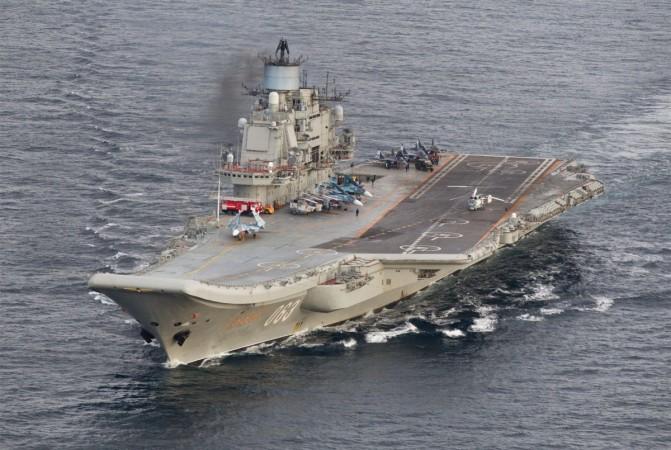
The Admiral Kuznetsov battle group, led by the Russian aircraft carrier of the same name, is beginning its voyage home; leaving behind a country that has been at the epicenter of a conflict that started as a civil war and threatened to spiral into an all-out battle between the world's heavyweights.
This is how NATO members are preparing for possible Russian aggression in the Baltic
As Russia begins its drawdown in Syria, one can't help but wonder if President Vladimir Putin and his chiefs of staff achieved their goals.
The country Russia is leaving behind is not much better off than when it entered the conflict. Sure, there's a tenuous peace deal in place and a ceasefire is holding on by the skin of its teeth, but the country is walking a tightrope and the beasts below are still gnashing.
It was always evident that the main aim behind Putin's military expedition into Syria was to bolster the rule of President Basher al-Assad, and keep the rebels away from the gates of Damascus. In that, Russia will consider the Syria venture a successful one.
Once the Russians entered the civil war, the anti-Assad rebels never really had a chance considering the half-hearted support they received from the US and Turkey (who was always more intent on keeping the Kurds in check rather than toppling Assad).
Now beaten and bloody, the rebels must play a waiting game at the table, as the battle turns its focus back to ISIS, who were given much-needed breathing space in Syria.
Russia always stated that their intention in Syria was to protect the country from a rampaging Islamic State, and they did hit them hard, but just enough to make sure that they wouldn't venture down the road to Damascus with too much enthusiasm.
Russia is certainly not going to pull all its forces out of Syria, and Assad can expect a hefty contingent of warplanes, specialists, and advisors to remain, just in case the rebels and ISIS decided to fill the void with the blood of a few more thousand Syrian civilians.
Military experts have been surprised at the efficiency of the Russian drawdown, which signals a ruthlessly clear exit strategy (something the Americans seem to have a major problem formulating), but it also gives rise to a far more burning question....
As Russia pulls out of Syria, its now tried-and-tested military hardware will look for other theatres of operation, but where? All eyes will now shift back to Eastern Europe and the Baltics, where in case you forgot, the Russian bear first began its steady climb to the top of the food chain.
Syria will now hope for a period of calm that may allow civilians to get back an iota of normalcy, and as long as ISIS continues to be bogged down in a battle of attrition in Iraq, it seems they may finally get their wish, short-lived as it may be.















